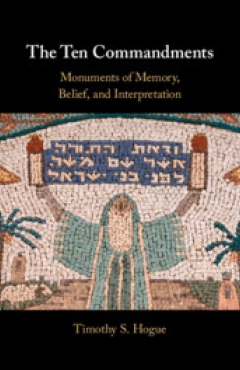Tim Hogue is a specialist in Hebrew Bible and ancient Israel, and he analyzes both within the broader cultural continuum of the ancient eastern Mediterranean and West Asia. Before coming to Penn, Tim completed his doctoral work at UCLA and subsequently held a position in the History and Anthropology Department at the University of Tsukuba (Japan).
In his first monograph – The Ten Commandments: Monuments of Memory, Belief, and Interpretation – he developed a new approach to the origins of Scripture centered on one of the Bible’s most famous texts. Based on parallels with ancient Levantine monumental inscriptions, he argued that the scribes responsible for producing and editing the Decalogue and its narrative contexts utilized known models for imbuing texts with authority and for materializing the speech of important individuals. In other words, these ancient writers used the conventions of monumental writing to present Yahweh as a divine king and the Ten Commandments as his constitution for Israel. Tim’s current project addresses the relationship between place, travel, and ideology, especially in the relation to pilgrimage.
In the classroom, Tim aims to bring the world of the Bible, ancient Israel, and the cultures that surrounded them back to life. He does so by placing biblical texts within their original social and historical contexts, presenting the stories of Israel in high definition. Utilizing resources like the Penn Museum, he invites his students to inhabit the lives of ancient Israelites by visually and tactilely engaging their material culture.
- Introduction to the Bible: The Old Testament
- Visible Language: History of Writing Systems
- Jerusalem: Holy City


